Share
Working at ESO
Are you interested in working in areas of frontline technology and in a stimulating international environment? Do you feel your profile matches our requirements? Learn more about our current vacancies and apply online. Read more..
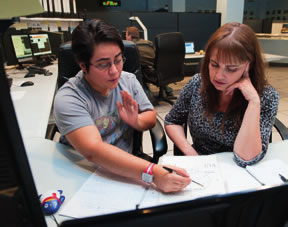
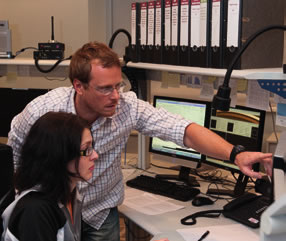

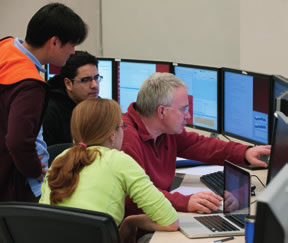
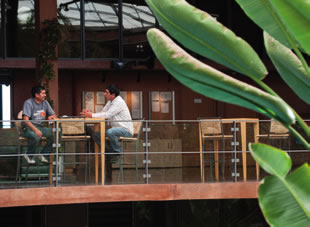

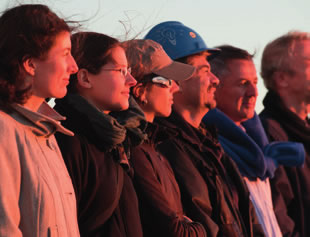
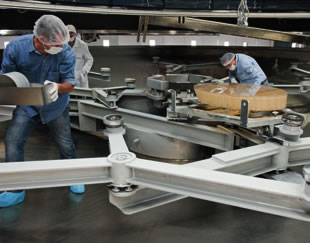
The European Organisation for Astronomical Research in the Southern Hemisphere (ESO) is the foremost intergovernmental astronomy organisation in Europe and the world's most productive astronomical observatory. ESO operates three unique world-class observing sites in the Atacama Desert region of Chile: La Silla, Paranal and Chajnantor. The ESO headquarters are located in Garching, near Munich, Germany. ESO is the focal point for Europe's participation in the Atacama Large Millimeter Array (ALMA) consortium, which is operating a large submillimetre array in the Chilean Andes. The construction of the European Extremely Large Telescope (E-ELT) is also currently underway.
For its Directorate of Engineering at the Headquarters in Garching near Munich, Germany, ESO is opening the position of
Electronics Engineer
Garching
Deadline 07/08/2015
The position is in the Electronic Engineering Department, within the Directorate of Engineering at ESO’s Headquarters in Garching, near Munich. The department comprises a group of 27 Electronic/Electrical Engineers and Technicians who are responsible for the definition, design and implementation of complex control systems for advanced optical and infrared astronomical instrumentation, detectors and telescope systems required for ESO’s Observatories in Chile.
Within ESO’s matrix structure, the successful candidate will have responsibility in defining the appropriate sensor technology and detector controller systems to fulfil the scientific requirements of infrared instruments and to design, modify, integrate and qualify infrared detector systems. After an extended training period he/she will also be responsible for the final performance of the delivered systems and shall be able to provide support to the observatory staff for maintenance and problem solving.Main Duties and Responsibilities:
The Electronics Engineer will be directly responsible to:
- Develop new detector setups, test prototype and science detectors for optical and infrared instruments;
- Integrate, test and verify performance of focal plane performance in IR/visible instruments according to specifications;
- Design and development new electronics as part of continued detector controller development;
- Collaborate with ESO Engineers from other projects and Observatories;
- Provide support to observatory staff for maintenance and problem solving on IR/optical detector systems already in operation;
- Familiarise with the current ESO detector controller and afterwards configure the controller to operate and optimize new detectors;
- Analyse limitations of current ESO detector controller and propose modifications and new developments to meet specifications of upcoming detector systems. This will involve VHDL design;
- Closely collaborate with external instrument consortia and detector manufacturers and establish good working relationships;
Experience:
- A minimum of 3 years of professional experience in the area of detector electronics and/or IR/visible detector system design, integration, qualification and test;
- Experience in several of the following fields:
- High speed and low noise analogue electronics, including PCB design;
- Familiarity with state-of-the-art detector controllers;
- IR/visible detector system design, integration and test;
- Cryogenics and vacuum technology;
- Design of low noise electronics operational at cryogenic temperatures;
- Scripting/computer languages such as PYTHON, IDL or LabView;
- VHDL programming;
- Basic understanding of high precision mechanics;
- Signal and image processing concepts.
Key Competences:
- Designs, develops, tests and integrates new detector systems for visible and infrared instruments;
- Calibrates detector systems and quantifies overall system performance.
- Ability to build strong collaborative working relationships with people from different cultural backgrounds and disciplines;
- Provides clear, concise and timely oral and written communications that identify key issues, examine options and propose a way ahead;
- Acquires new skills, keeps up-to-date with the tools used in daily work, adapts to new procedures and identifies ways to optimize the workflow;
- Monitors progress of own work, delivers to agree deadlines and standards, plans activities, contributes to system design and is able to work under pressure;
- Strong influencing skills, ability to motivate and inspire others.
Qualifications:
University degree in electronics, physics or equivalent.
Language Skills:
Excellent command of the English language is essential; a working knowledge of German of Spanish would be an advantage.
Remuneration and Contract:
We offer an attractive remuneration package including a competitive salary (tax free), comprehensive pension scheme and medical, educational and other social benefits, as well as financial help in relocating your family and the possibility to place your child/children in day care.
The initial contract is for a period of three years with the possibility of a fixed-term or indefinite extension based on technical and managerial achievements. The title or grade may be subject to change according to qualification and the number of years of experience.
Duty Station:
Garching near Munich, Germany with duty trips to ESO sites in Chile will be required.
Career Path:
V
Application:
If you are interested in working in areas of frontline technology and in a stimulating international environment, please visit (http://www.eso.org) for further details.
Applicants are invited to apply online at http://jobs.eso.org/. Applications must be completed in English and should include a motivation letter and CV together with the names of three individuals willing to provide professional reference letters.
Closing date for applications is 24 July 2015.
Interviews are expected to start soon after this date.
No nationality is in principle excluded. However, recruitment preference will be given to nationals of Austria, Belgium, Brazil, the Czech Republic, Denmark, Finland, France, Germany, Italy, the Netherlands, Poland, Portugal, Spain, Sweden, Switzerland and United Kingdom.
The post is equally open to suitably qualified female and male applicants.
